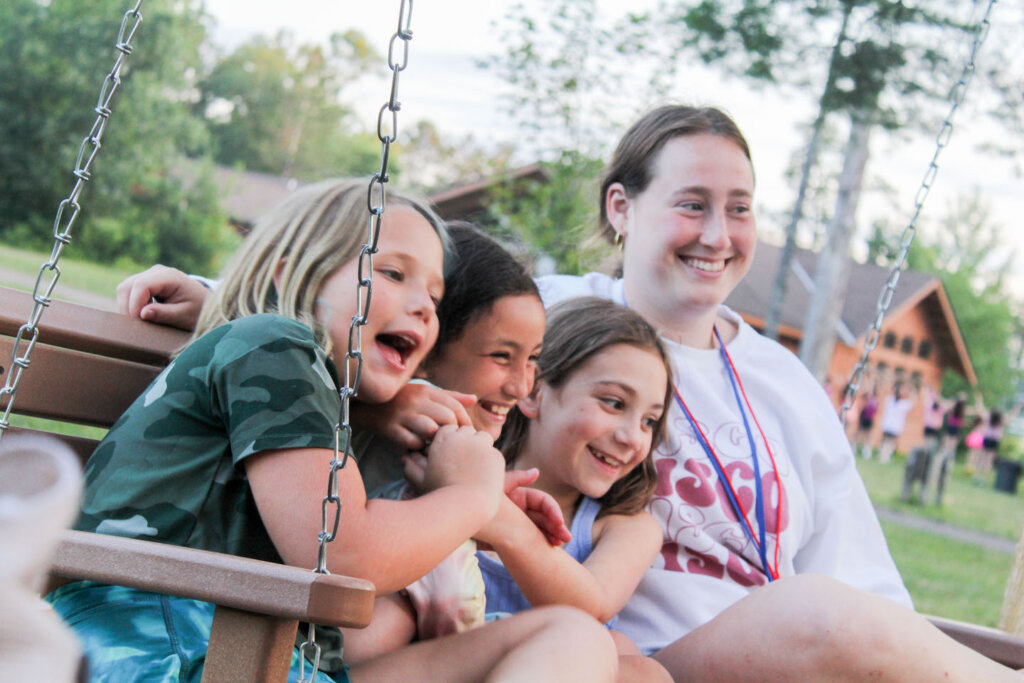With summer approaching, are you still considering registering your child for camp this summer? Are they already registered and you’re wondering how to help set them up for success? Good news – it’s not too late for either!
As a camp professional who didn’t start camp until I was 15-years old, I truly believe there is no “right” age to try out camp. Some kids will hop on the bus at 7-years old and never look back! Others might not be ready until many years later.
Rather than looking at their age, consider their “readiness factors” to determine when the right time is for your child.
Here are some ways to help your child get ready for their first overnight camp experience (and help you feel more confident with them being away!):
- Instill confidence in your child. As you prepare your child for camp, be mindful of the way you’re talking about their experience. It’s important to show them that you’re confident that they’ll have a positive experience. It’s ok to tell them that you’ll miss them, but avoid saying things like “I don’t know what I’ll do without you while you’re gone!” (even if that is really how you might feel!). You want your child to go to camp feeling confident and supported, not worried about you missing them.
- Practice being away from each other. Has your child had a successful sleepover? If so, that’s great! Is there an opportunity for them to spend a longer period of time away from you? If they haven’t yet had a successful sleepover, now is the time to give it a try. At any age, kids might experience nervousness when away from their parents or home. If you can help your child articulate those feelings, we can help them adjust to being away from home for an extended period of time.
- Teach them how to ask for help. One of the awesome things about camp is that your child’s counselors will become new dugmaot (role models) in their lives. While they have all kinds of important skills, they don’t know your child the same way you do. This means that it is important that your child is able to express their needs and concerns if they are struggling. Over the next few months, consider how your child problem-solves and how they express themselves when something is bothering them. Having the ability to ask for help when they need it or letting someone know when they’re feeling sad will be essential to having a positive camp experience.
- Work on managing emotions and peer interactions. If your child tends to get along well with their peers and is able to navigate friendship challenges, with some support from an adult, this is going to help them in navigating communal living. The way that your child reacts when they lose a game or when they get into an argument with a friend, tends to be exacerbated by the communal living environment and being in close quarters with their peers at all times. Talking with your child about what they can do if they get upset and/or need a break, will help them to regulate themselves during those challenging moments. Be sure to share these strategies with your child’s counselors on your forms, too!
- Increase independence in daily tasks. Camp is a great place for your child to become more independent in a safe and controlled environment. In order for them to do that, they do need to have a base level of independence prior to arriving at camp. This includes things such as showering, brushing teeth, getting ready for the day, eating a balanced meal, etc. Their counselors will be there to provide reminders and oversight, but campers will be expected to have the skills to complete these tasks on their own.
If any of the above tips sparked questions or concerns about your child, please don’t hesitate to reach out. We know that sending your child away for the first time can be nerve-wracking. It can also be the start to a wonderful, growth-filled journey for you and your child. You aren’t on this journey alone and we are here to help guide you along the way. Reach out if you’d like to talk it over!

